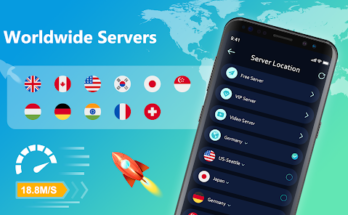In recent years, the landscape of education has undergone a significant transformation, largely driven by the proliferation of digital technology and the internet. One notable trend is the rise of free online courses, which have democratized access to education, making it possible for individuals from various socio-economic backgrounds to acquire new skills and knowledge without the traditional financial barriers. In Pakistan, a country with a young population eager for learning and skill development, the availability of free courses has opened up numerous opportunities for personal and professional growth. This article delves into the concept of free courses in Pakistan, exploring how they work, their features, pros and cons, and alternatives, to provide a comprehensive understanding of their impact on education in the country.
What are Free Courses in Pakistan?
Free courses in Pakistan refer to educational programs and training sessions that are available at no cost to the learners. These courses cover a wide range of subjects, from basic literacy and numeracy skills to advanced topics in science, technology, engineering, and mathematics (STEM), business, arts, and humanities. They are offered by various platforms, including governmental initiatives, non-profit organizations, universities, and private companies. The primary aim of these courses is to provide accessible education to all, regardless of financial constraints, and to bridge the educational gap in the country.
The concept of free courses is not entirely new, but the digital age has significantly expanded their reach and impact. With the internet becoming more accessible, especially with the advent of mobile technology, more Pakistanis can now benefit from these educational resources. Free courses are typically delivered online through websites and mobile applications, making them accessible to anyone with an internet connection. Some of the most prominent platforms offering free courses in Pakistan include Coursera, edX, Khan Academy, and local initiatives like the Virtual University of Pakistan and DigiSkills.pk.
How Free Courses in Pakistan Work
Free courses in Pakistan operate through a variety of models, each designed to cater to different learning needs and preferences. The most common model involves online learning platforms that host a vast array of courses developed by universities, educational institutions, and industry experts. Here’s a breakdown of how these courses typically work:
Registration and Enrollment
To start a free course, learners usually need to create an account on the chosen platform. This process involves providing basic information such as name, email address, and sometimes additional details like educational background or professional experience. Once registered, learners can browse the available courses and enroll in the ones that interest them.
Course Content Delivery
Course content is delivered through various formats, including video lectures, reading materials, quizzes, assignments, and discussion forums. Video lectures are often pre-recorded and can be streamed or downloaded for offline access. Reading materials might include textbooks, articles, and research papers, which are often provided as PDFs or web links.
Interactive Elements
Many free courses incorporate interactive elements to enhance the learning experience. These can include quizzes to test comprehension, assignments that require practical application of concepts, and peer-reviewed projects. Discussion forums and chat groups enable learners to interact with instructors and fellow students, fostering a sense of community and collaboration.
Certification
While the primary appeal of free courses is their accessibility, many platforms offer the option to earn certificates upon completion. These certificates can sometimes be obtained for free, but in many cases, a nominal fee is required. These certifications can be valuable for career advancement, as they demonstrate a commitment to continuous learning and skill development.
Support and Resources
Some platforms provide additional support and resources, such as mentoring, career counseling, and access to exclusive content. This can be particularly beneficial for learners who need guidance or are looking to apply their new skills in the job market.
Features of Free Courses in Pakistan
Free courses in Pakistan come with a variety of features designed to provide a comprehensive and flexible learning experience. These features cater to diverse learning needs and help overcome common barriers to education.
Accessibility
One of the most significant features of free courses is their accessibility. They can be accessed from anywhere with an internet connection, which is crucial in a country where physical access to quality education is often limited. Mobile-friendly platforms further enhance accessibility, allowing learners to study on the go.
Diverse Course Offerings
Free courses cover a wide range of subjects, from basic education and vocational training to advanced academic topics. This diversity allows learners to pursue interests in various fields and acquire new skills that are relevant to their personal and professional goals.
Self-Paced Learning
Many free courses offer self-paced learning, allowing students to progress through the material at their own speed. This flexibility is particularly beneficial for working professionals, students with other commitments, and individuals who prefer to learn at their own pace.
High-Quality Content
The content of free courses is often developed by reputable institutions and industry experts, ensuring high educational standards. Platforms like Coursera and edX partner with top universities worldwide, while local initiatives often collaborate with leading Pakistani educational institutions.
Interactive Learning Tools
To enhance engagement and retention, many free courses include interactive learning tools such as quizzes, simulations, and discussion forums. These tools help reinforce concepts, provide immediate feedback, and enable interaction with peers and instructors.
Certification and Credentials
While not all free courses offer certification, many provide the option to earn a certificate upon completion. These certificates can add value to a learner’s resume and are recognized by employers, particularly in fields that value continuous education and skill development.
Multilingual Support
Considering Pakistan’s linguistic diversity, many free courses offer content in multiple languages, including Urdu and regional languages. This feature ensures that language is not a barrier to learning and helps reach a broader audience.
Community and Networking
Discussion forums, study groups, and social media integration provide opportunities for learners to connect with peers, share insights, and collaborate on projects. This sense of community enhances the learning experience and can lead to professional networking opportunities.
Cost-Effectiveness
The most apparent feature is that these courses are free of cost. This removes the financial barrier that prevents many individuals from pursuing further education and allows them to invest their resources in other essential areas.
Up-to-Date Curriculum
Many free courses are regularly updated to reflect the latest industry trends and academic research. This ensures that learners are gaining relevant and current knowledge that can be immediately applied in their careers or further studies.
Pros of Free Courses in Pakistan
Free courses in Pakistan offer numerous advantages that make them an attractive option for learners from various backgrounds. The table below summarizes the key pros:
| Pros | Description |
|---|---|
| Accessibility | Available to anyone with internet access, overcoming geographical and financial barriers. |
| Diverse Subjects | Wide range of topics, from basic education to advanced professional skills. |
| Flexibility | Self-paced learning allows students to study at their own convenience. |
| Quality Content | Courses developed by reputable institutions and experts. |
| Interactive Tools | Engaging tools like quizzes and forums enhance learning. |
| Certification | Certificates available, often recognized by employers. |
| Multilingual Support | Courses offered in multiple languages, catering to Pakistan’s diverse population. |
| Community and Networking | Opportunities for interaction and professional networking. |
| Cost-Effective | No tuition fees, making education accessible to all economic backgrounds. |
| Updated Curriculum | Regularly updated content to keep up with industry and academic developments. |
Cons of Free Courses in Pakistan
Despite the many advantages, free courses in Pakistan also have some limitations. The table below highlights the key cons:
| Cons | Description |
|---|---|
| Limited Personal Interaction | Lack of face-to-face interaction with instructors and peers. |
| Varied Quality | Quality of courses can vary significantly between different platforms. |
| Certification Costs | Certificates often require a fee, which can be a barrier for some learners. |
| Internet Dependency | Requires a stable internet connection, which is not available in all regions. |
| Self-Discipline Required | Self-paced learning requires strong self-discipline and motivation. |
| Limited Practical Experience | Some courses may lack hands-on or practical components essential for skill mastery. |
| Recognition | Not all employers recognize certificates from free courses. |
| Completion Rates | High dropout rates due to lack of accountability and support. |
| Technical Issues | Potential technical issues with online platforms can disrupt learning. |
| Language Barriers | Not all courses are available in local languages, limiting access for non-English speakers. |
Free Courses in Pakistan Alternatives
While free courses offer many benefits, there are several alternatives that learners in Pakistan might consider. The table below compares some of these alternatives:
| Alternative | Description | Pros | Cons |
|---|---|---|---|
| Traditional Universities | Formal education through universities and colleges. | Structured learning, recognized degrees, personal interaction. | High cost, geographical constraints, rigid schedules. |
| Vocational Training Centers | Practical training in specific trades and professions. | Hands-on experience, direct job market relevance. | Limited subject range, sometimes high cost, fixed locations. |
| Private Online Courses | Paid courses offered by private institutions and online platforms. | High-quality content, often with personalized support. | Expensive, not always recognized by employers. |
| Self-Study | Learning through books, online resources, and self-directed study. | Highly flexible, often low cost or free, tailored learning. | Lack of structure, no formal recognition, requires discipline. |
| Corporate Training Programs | Employer-sponsored training and development programs. | Direct relevance to job, often free for employees. | Limited to employees, subject-specific, potential obligation to employer. |
| Community Education Programs | Local educational initiatives offering classes and workshops. | Accessible, community-focused, often low-cost or free. | Limited range of subjects, variable quality. |
| MOOCs (Massive Open Online Courses) | Free or low-cost courses available globally through platforms like Coursera and edX. | High-quality content, flexible learning. | May require fees for certification, variable course quality. |
Conclusion and Verdict on Free Courses in Pakistan
Free courses in Pakistan represent a significant step towards making education accessible to all, regardless of socio-economic status. They offer a flexible, cost-effective, and diverse range of learning opportunities that can help individuals enhance their skills, pursue new interests, and advance their careers. The interactive tools, high-quality content, and the potential for certification make these courses a valuable resource for self-improvement and professional development.
However, it’s essential to recognize the limitations, such as the need for self-discipline, the varying quality of courses, and the dependency on internet access. While free courses can complement traditional education and provide significant benefits, they may not entirely replace the comprehensive experience and formal recognition that traditional educational institutions offer.
Ultimately, the best approach may involve a combination of free courses and other educational alternatives, depending on individual learning goals, career aspirations, and personal circumstances. By leveraging the strengths of each educational resource, learners in Pakistan can create a customized and effective path to knowledge and skill acquisition.
FAQs Free Courses in Pakistan
What types of free courses are available in Pakistan?
Free courses in Pakistan cover a wide range of subjects, including basic education, vocational training, professional development, and advanced academic topics. Subjects can range from computer science, business management, and digital marketing to arts, humanities, and social sciences.
How can I access free courses in Pakistan?
Free courses can be accessed through various online platforms such as Coursera, edX, Khan Academy, and local initiatives like DigiSkills.pk and the Virtual University of Pakistan. Registration on these platforms is usually required to enroll in courses.
Are certificates from free courses recognized by employers?
Certificates from reputable platforms like Coursera and edX are often recognized by employers, especially in fields that value continuous education. However, the recognition can vary, and some employers may prioritize formal degrees over certificates from free courses.
Do free courses in Pakistan offer support and resources?
Many free courses provide additional support and resources, including discussion forums, mentoring, and career counseling. However, the level of support can vary between platforms and specific courses.
What are the technical requirements for accessing free courses in Pakistan?
The primary technical requirement is a stable internet connection. Additionally, a computer or mobile device capable of streaming videos, downloading materials, and participating in online discussions is necessary.
Are free courses available in local languages?
Some platforms offer courses in Urdu and other regional languages to cater to Pakistan’s diverse population. However, many courses, particularly those from international platforms, are primarily in English.
Can free courses help with career advancement?
Yes, free courses can help with career advancement by providing new skills, enhancing existing ones, and offering certificates that demonstrate commitment to professional development. They are particularly useful for staying updated with industry trends and acquiring skills in high-demand areas.
Are there any costs associated with free courses?
While the courses themselves are free, there may be costs associated with obtaining certificates, accessing premium content, or utilizing additional resources. These costs vary depending on the platform and specific course.
How do I stay motivated while taking free courses?
Setting clear goals, creating a study schedule, participating in discussion forums, and seeking support from peers can help maintain motivation. Self-discipline and a strong commitment to learning are crucial for success in free courses.
Can I combine free courses with traditional education?
Yes, free courses can complement traditional education by providing additional knowledge and skills. They are a great way to explore new subjects, reinforce existing knowledge, and stay current with industry developments alongside formal education.




